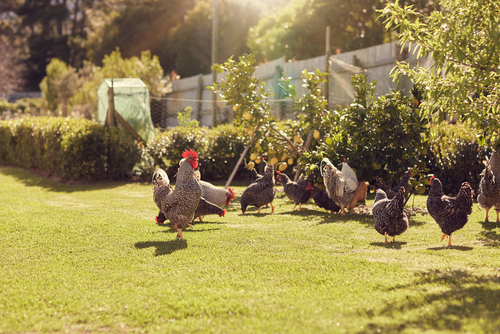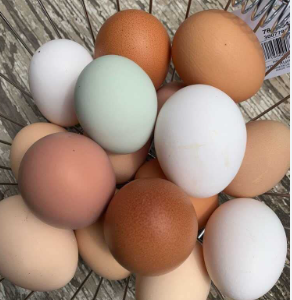If you’re a homesteader, then keeping chickens in your backyard is a great way to get fresh eggs every day without having to go to the store. But it’s not as simple as just buying a few chickens and letting them roam around your yard. In order to keep chickens safely and responsibly, there are some important considerations that need to be taken into account. This guide will provide you with everything you need to know about keeping backyard chickens.
Building or Buying Coops
The first step in keeping backyard chickens is building or purchasing a suitable chicken coop. The size of the coop will depend on how many chickens you plan on keeping; for every four hens, you should plan on having at least four square feet of floor space for them. When it comes time to build or buy a coop, there are a few things that you’ll need to consider: ventilation, predators, insulation, and cleaning.
Ventilation is essential in order to keep the air inside the coop clean and fresh; proper ventilation also helps reduce moisture buildup which can be harmful for your chickens’ health. Predators are also something that needs to be taken into account when building or buying a coop; make sure that all openings are securely fastened and inaccessible from outside animals like raccoons or foxes. Insulation is also important for regulating the temperature inside the coop; this will help keep your chickens healthy in extreme weather conditions. Finally, make sure that the coop has an easy-to-clean design so that it can be kept sanitary at all times.
 Everything You Need To Know
Everything You Need To Know
Once you have your coop set up and ready for your new feathered friends, there are still some other considerations that need to be taken into account before bringing home any birds. Make sure that you have enough food and water containers for all of your birds, as well as ample space for them to move around in their enclosure without getting cramped or overcrowded (a minimum of 10 square feet per bird is recommended). Additionally, make sure that they have access to plenty of shade during hot days—this could mean erecting a canopy over their run area or planting some trees nearby—and protection from rain during cold days (such as providing shelter within their enclosure). Finally, make sure that all chicks receive regular vaccinations prior to bringing them home; this will help prevent any diseases from spreading among your flock.
 Keeping backyard chickens is both rewarding and fun! With proper planning and preparation—including building or buying an appropriate chicken coop, making sure they have enough food & water containers, providing adequate shade & shelter from bad weather conditions—you can ensure a happy and healthy flock who produce fresh eggs every day! Homesteaders everywhere can benefit from learning more about raising backyard chickens—so why not give it a try?
Keeping backyard chickens is both rewarding and fun! With proper planning and preparation—including building or buying an appropriate chicken coop, making sure they have enough food & water containers, providing adequate shade & shelter from bad weather conditions—you can ensure a happy and healthy flock who produce fresh eggs every day! Homesteaders everywhere can benefit from learning more about raising backyard chickens—so why not give it a try?




















Add comment